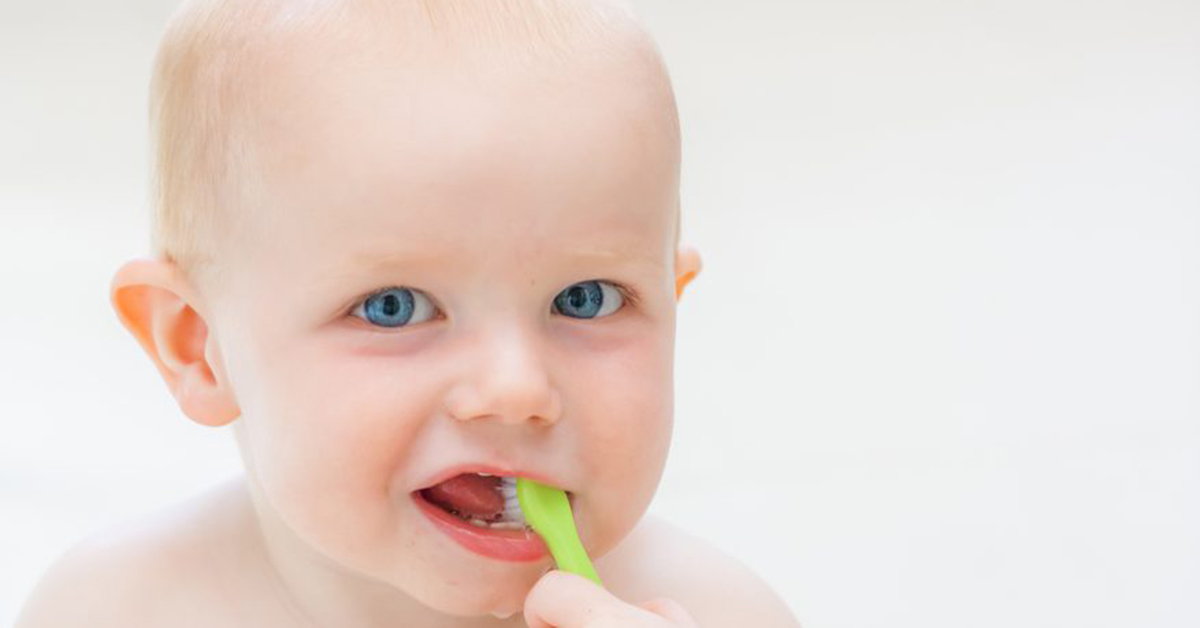
Kids learn by example, and parents are the first and primary
example kids have when it comes to creating healthy habits on their own.
Parents sometimes have a hard time convincing their kids to take good care of
their teeth. Although a child’s baby teeth will eventually all fall out, it’s
not a free pass when it comes to their care. Neglecting them can result in
early tooth decay, which is becoming more of a prevalent problem, especially in
low income families. Starting early with good tooth care habits will pay off
throughout your child’s life. This begins as early as infancy, where you can
establish a dental hygiene routine.
Many parents understand the importance of oral care but
struggle with keeping their children motivated to brush on a consistent basis.
It can be challenging to get them to sacrifice a few minutes out of their
playtime, but some simple steps can help:
- Let them watch you – A great way to encourage children to take care of their own teeth, and to help them brush and floss, is have them watch you do it as well.
- Help young children brush and floss – Be available to help them until at least 6 years of age. Even after that, it’s a good idea to conduct fresh-breath checks to make sure your child is keeping their smile healthy!
- Play a song while brushing – Make brushing more fun and less of a chore by playing one of their favourite songs. You can find a song that ends at around 2 minutes or just set a timer.
- Reward them for brushing consistently – Track their consistency on a chart with stickers or a calendar, and reward them with a gift, outing or prize each month for brushing twice a day without missing a day.
- Let them pick the toothpaste flavour – Let your children decide what toothpaste flavour they want to use, and try out new flavours if they haven’t found one they like yet.
Most parents skip one key part of dental health – flossing. While brushing is the main way to combat cavities and bacteria, flossing between tiny teeth is what gets the food and plaque out of hard to reach places a toothbrush can’t.
Flossing should start once kids have teeth next to one another. It’s important to add flossing into your morning or bedtime (or both) dental habits; floss at least once a day.
Even before those pearly whites pop through, it’s a good idea to start introducing a soft bristle or rubber toothbrush. Let them chew on the brush when they’re starting to teethe, and gently rub a soft-bristled and age-appropriate
toothbrush over gums with water. Stay away from fluoride toothpaste because you don’t want them to swallow it.
Before your kids start using a toothbrush, the best thing
you can do is brush your own teeth in front of them every morning and night.
This subliminal message lets your child see brushing and flossing is something
you do every day, twice a day, without fail. As a rule of thumb, parents should
be involved in daily tooth brushing until the age of 7 or 8, and if they do
brush on their own, be sure to inspect your child’s teeth for missed spots.
Remember, it takes 30-days to create a habit and this is the perfect opportunity to create a positive one to set your child on a positive course for good health and
oral care for the rest of their life.
 Kids learn by example, and parents are the first and primary
example kids have when it comes to creating healthy habits on their own.
Parents sometimes have a hard time convincing their kids to take good care of
their teeth. Although a child’s baby teeth will eventually all fall out, it’s
not a free pass when it comes to their care. Neglecting them can result in
early tooth decay, which is becoming more of a prevalent problem, especially in
low income families. Starting early with good tooth care habits will pay off
throughout your child’s life. This begins as early as infancy, where you can
establish a dental hygiene routine.
Many parents understand the importance of oral care but
struggle with keeping their children motivated to brush on a consistent basis.
It can be challenging to get them to sacrifice a few minutes out of their
playtime, but some simple steps can help:
Kids learn by example, and parents are the first and primary
example kids have when it comes to creating healthy habits on their own.
Parents sometimes have a hard time convincing their kids to take good care of
their teeth. Although a child’s baby teeth will eventually all fall out, it’s
not a free pass when it comes to their care. Neglecting them can result in
early tooth decay, which is becoming more of a prevalent problem, especially in
low income families. Starting early with good tooth care habits will pay off
throughout your child’s life. This begins as early as infancy, where you can
establish a dental hygiene routine.
Many parents understand the importance of oral care but
struggle with keeping their children motivated to brush on a consistent basis.
It can be challenging to get them to sacrifice a few minutes out of their
playtime, but some simple steps can help:



